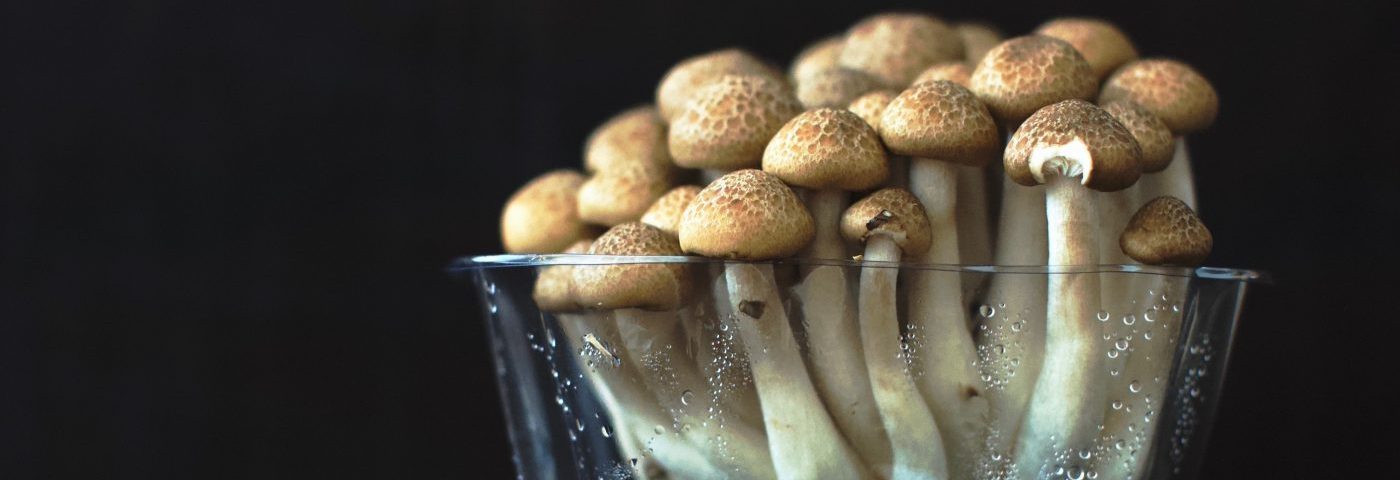Eating mushrooms frequently — three times a week or more — may have a reduced risk of prostate cancer compared to those eating mushrooms less than once a week, a study of Japanese men found.
The association holds true only for men 50 or older, according to the study’s findings, but persists regardless of clinical stage of cancer and consumption of other foods, such as fruit, vegetables, meat and dairy products.
The study, “Mushroom consumption and incident risk of prostate cancer in Japan: A pooled analysis of the Miyagi Cohort Study and the Ohsaki Cohort Study,” was published in the International Journal of Cancer.
Although there is no absolute way to prevent prostate cancer, studies have suggested that maintaining healthy eating habits, such as consuming more vegetables and fruits, might lower the risk of prostate cancer.
To date, an increasing number of studies have suggested that mushrooms may have beneficial effects on health due their antioxidant and anti-inflammatory properties.
Mushrooms also reportedly have anti-cancer properties. Preclinical studies indicate that mushrooms have the potential to prevent several kinds of cancers, including prostate cancer.
But, to date, only one clinical study (a Phase 1 trial) in humans has been conducted to investigate the effect of mushroom intake on prostate cancer recurrence. Patients who had recurrent prostate cancer were given different doses of white button mushroom powder, and 36% of them experienced a decline in prostate‐specific antigen (PSA) levels (an indicator of disease activity), suggesting that mushroom intake might modulate PSA levels in recurrent prostate cancer patients.
To further determine whether mushrooms may have a beneficial effect on prostate cancer, researchers conducted a study in two groups of middle‐aged and elderly Japanese men.
The study included 36,499 men who participated in the Miyagi Cohort Study in 1990 and the Ohsaki Cohort Study in 1994, and who were followed for a median of 13.2 years. Patients were aged 40–79 years.
Data on mushroom consumption was collected using a validated food frequency questionnaire — the Food Frequency Questionnaire (FFQ) — and categorized as eating mushrooms less than once a week, once to twice a week, and three or more times a week.
During the follow-up, 1,204 (3.3%) of participants developed prostate cancer.
Researchers found an inverse relationship between mushroom consumption and prostate cancer incidence. In other words, the more frequently a person ate mushrooms, the less likely they would be of developing prostate cancer.
Compared to men eating mushrooms only once a week, men who ate mushrooms two to three times a week were 8% less likely of having prostate cancer, and this risk dropped by 17% for those eating mushrooms three or more times a week.
This relationship was especially significant among participants who were 50 or older.
Furthermore, the relationship between mushroom consumption and prostate cancer development did not differ by clinical stage of cancer, or intake of vegetables, fruit, meat, and dairy products.
“The present study showed an inverse relationship between mushroom consumption and incident prostate cancer among middle-aged and elderly Japanese men, suggesting that habitual mushroom intake might help to prevent prostate cancer,” researchers concluded.
However, “since information on mushroom species was not collected, it is difficult to know which specific mushroom(s) contributed to our findings,” lead author Shu Zhang, PhD, Tohoku University School of Public Health, explained in a press release. “Also, the mechanism of the beneficial effects of mushrooms on prostate cancer remains uncertain.”

